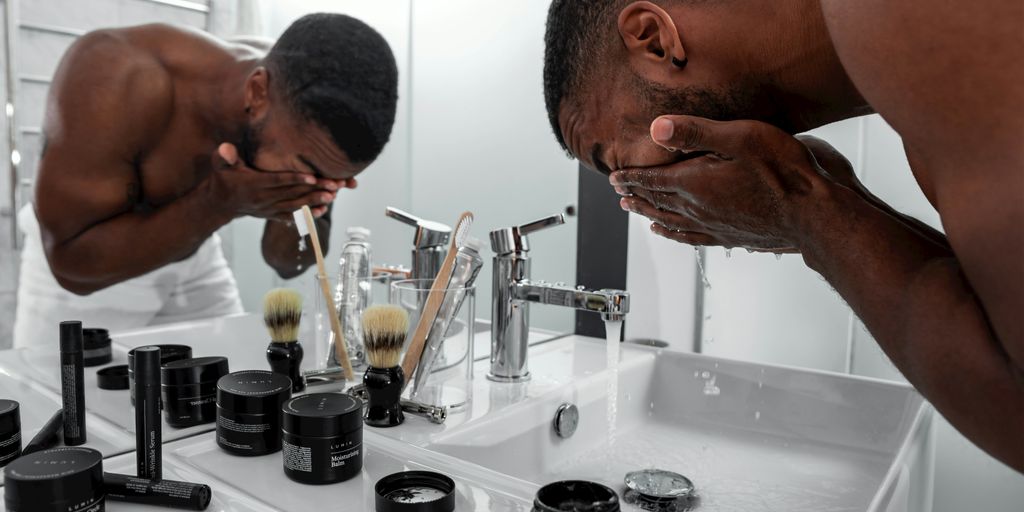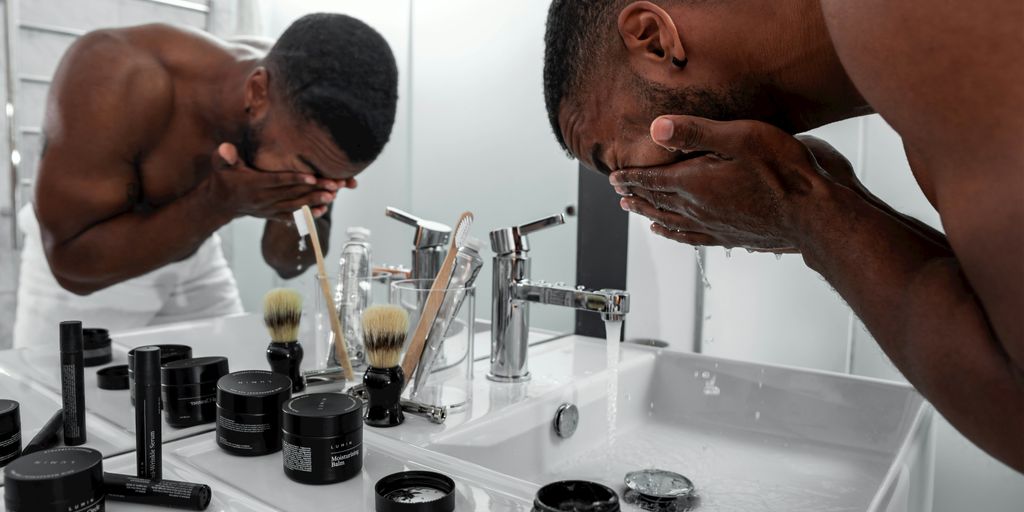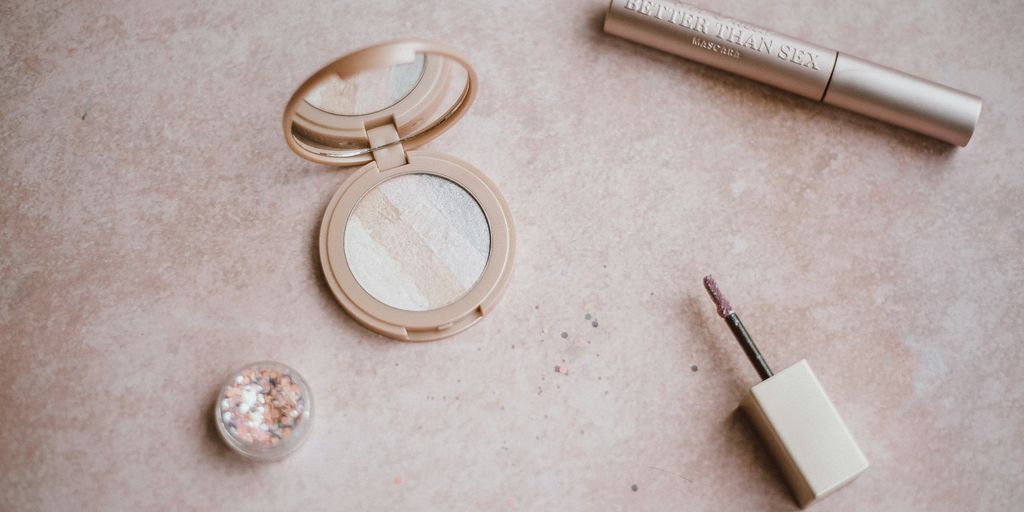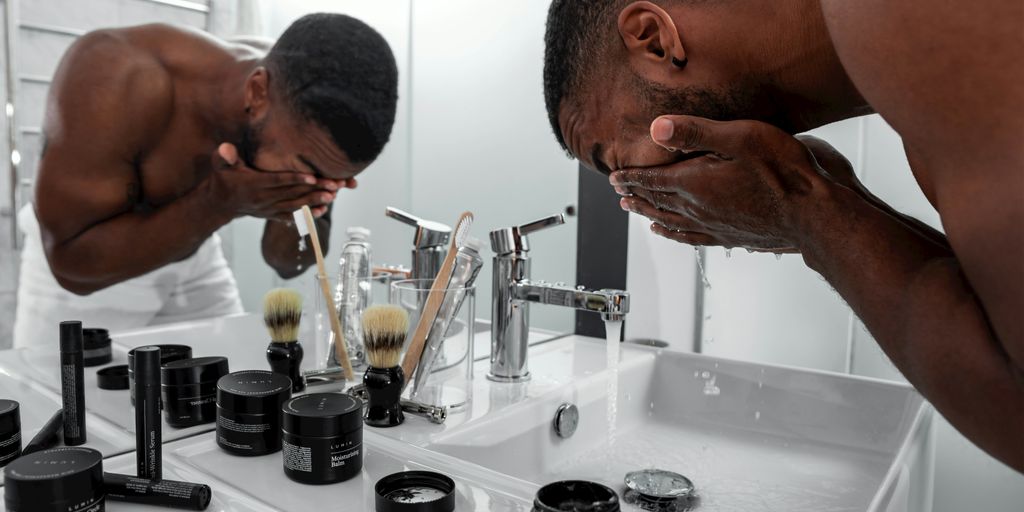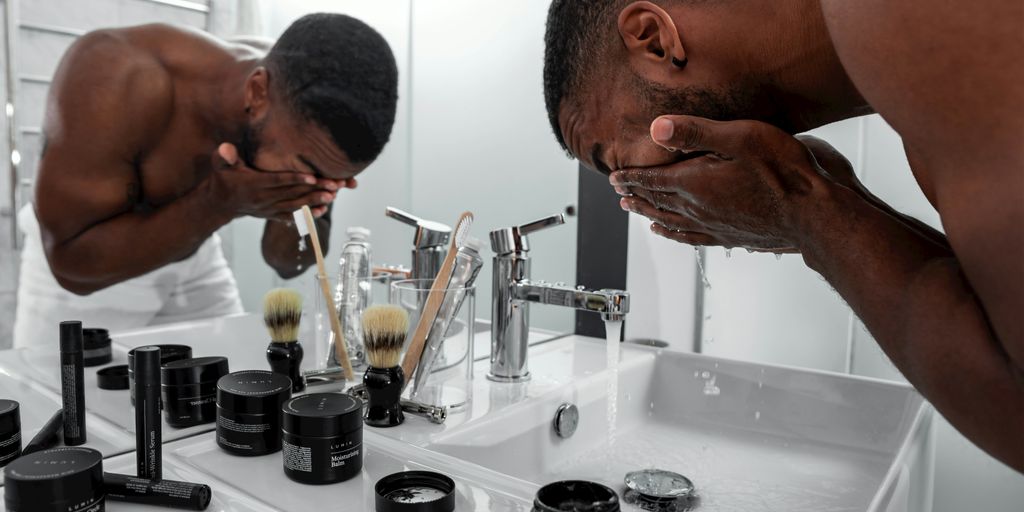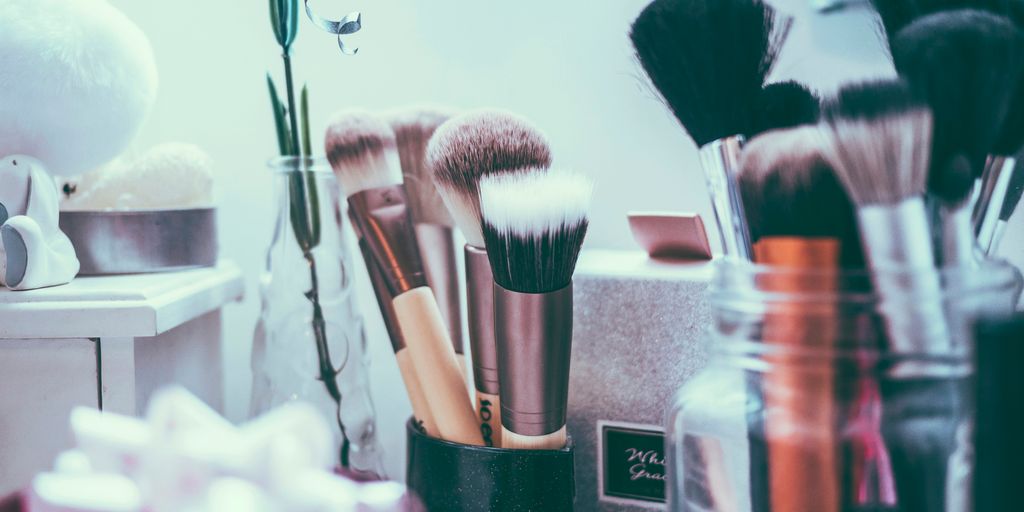In the ever-evolving world of skincare, many consumers are increasingly concerned about the ethics behind the products they use. One question that often comes up is, “Is Aveeno cruelty free?” As we explore this topic in 2025, we’ll take a closer look at Aveeno’s animal testing policies, their commitment to natural ingredients, and how they stack up against other brands. Let’s unpack the truth about Aveeno and its practices.
Key Takeaways
- Aveeno has not been certified as cruelty-free by organizations like PETA and Leaping Bunny.
- Concerns about animal testing practices stem from its parent company, Johnson & Johnson.
- Aveeno focuses on using natural ingredients and sustainable sourcing in its products.
- Consumer trust is affected by transparency regarding animal testing allegations.
- The brand is facing pressure to improve its cruelty-free status amidst rising consumer advocacy.
Understanding Aveeno’s Animal Testing Policies
Current Testing Practices
Okay, so let’s get into it. What’s Aveeno actually doing when it comes to animal testing? It’s a bit of a gray area, honestly. Aveeno isn’t officially certified cruelty-free by Leaping Bunny or PETA as of 4/20/2025. This means they haven’t gone through the rigorous auditing process these organizations require.
Here’s a breakdown of what we know:
- Aveeno states they don’t conduct animal testing on their products themselves.
- However, they sell in markets where animal testing is required by law (like China).
- It’s unclear how much they actively work to change those regulations.
Parent Company Influence
This is where things get a little complicated. Aveeno is owned by Johnson & Johnson, a massive corporation. J&J has a more complex history with animal testing. While they’ve made strides in reducing it, they haven’t eliminated it completely. This means Aveeno’s policies are, to some extent, influenced by J&J’s overall stance. It’s like a smaller boat being steered by a larger ship; Aveeno can only deviate so much. The parent company’s practices cast a shadow, and it’s something consumers should consider.
Consumer Concerns
Consumers are getting smarter and more vocal. People care about where their products come from and how they’re made. There’s a growing demand for transparency, and that includes knowing whether a brand tests on animals. Aveeno’s customers have expressed mixed feelings. Some are loyal because they trust the brand’s commitment to natural ingredients. Others are wary because of the lack of cruelty-free certification and the association with J&J. This creates a challenge for Aveeno. They need to address these concerns head-on if they want to maintain consumer trust.
It’s important for Aveeno to be upfront about their practices. Providing clear information about their testing policies, alternative testing methods, and efforts to influence regulations in countries where testing is required would go a long way in building confidence with consumers.
The Importance of Cruelty-Free Certification
What Does Cruelty-Free Mean?
Cruelty-free, at its heart, signifies that a product and its ingredients haven’t been tested on animals at any stage of development. This includes everything from the initial ingredient sourcing to the final product sitting on store shelves. It’s a commitment to ethical practices, acknowledging that animals shouldn’t suffer for the sake of beauty or personal care. However, it’s not always straightforward. Definitions can vary, and some companies might claim to be cruelty-free while still allowing testing by third parties or in countries where it’s legally mandated.
Key Certification Organizations
Navigating the world of cruelty-free claims can be tricky, which is where certification organizations come in. These groups set rigorous standards and audit companies to ensure they meet specific criteria. Some of the most recognized include:
- Leaping Bunny: This is probably the most well-known certification. It requires companies to have a supplier monitoring system in place and undergo independent audits.
- PETA’s Beauty Without Bunnies: PETA offers two logos: one for companies that don’t test on animals and another for vegan products. It relies on companies signing a statement of assurance and doesn’t conduct independent audits.
- Choose Cruelty Free (CCF): Based in Australia, CCF has strict standards and requires companies to prove they don’t test on animals at any stage. They also consider the animal testing policies of a company’s parent company.
Obtaining certification from one of these organizations provides consumers with assurance that a brand is truly committed to cruelty-free practices. It adds a layer of trust and accountability that self-declared claims often lack.
Impact on Consumer Trust
Cruelty-free certification significantly boosts consumer trust. In today’s market, many shoppers actively seek out brands that align with their values, and avoiding animal cruelty is a big one for a lot of people. When a brand has a credible certification, it sends a clear message that they’re serious about their commitment. Without it, consumers might be skeptical, wondering if the company is truly walking the walk or just paying lip service to the idea. This trust translates into brand loyalty and positive word-of-mouth, which are invaluable in the long run.
Aveeno’s Commitment to Natural Ingredients
Aveeno has been around for a while, and they’ve built a reputation on using natural ingredients. It’s a big part of their brand, and something a lot of people look for when choosing skincare. They really try to highlight this in their products and marketing.
Sourcing and Sustainability
Aveeno says they care about where their ingredients come from. They talk about sustainable sourcing, which basically means they want to get their ingredients in a way that doesn’t hurt the environment or the communities involved. It’s a nice idea, and more and more companies are trying to do this.
It’s important to remember that "sustainable sourcing" can mean different things to different companies. It’s always a good idea to look into the specifics to see if their practices align with your own values.
Natural vs. Synthetic Ingredients
Okay, so what’s the deal with natural versus synthetic? Aveeno focuses on ingredients like oats, soy, and feverfew. These are supposed to be gentle and effective for your skin. But, it’s worth remembering that "natural" doesn’t always mean "better." Sometimes, synthetic ingredients can be more stable, or even less irritating, depending on your skin type. It really depends on the specific ingredient and how your skin reacts.
Here’s a quick look at some common ingredients in Aveeno products:
- Colloidal Oatmeal: Soothes and protects skin.
- Soy: Evens skin tone and texture.
- Feverfew: Calms irritated skin.
Consumer Preferences
Lots of people like the idea of using natural ingredients. It just feels healthier, right? Aveeno has definitely tapped into that feeling. But, it’s also important to think about what your skin needs. Some people might find that natural ingredients work great for them, while others might need something different. It’s all about finding what works best for you. Aveeno’s focus on natural ingredients helps it stand out, but ultimately, it’s the results that matter most to consumers.
Transparency in Aveeno’s Practices
Communication with Consumers
Aveeno has built a reputation on being a brand that people can trust, and a big part of that is how they talk to their customers. They try to be open about their ingredients, how they make their products, and what their values are. This communication is key to maintaining trust, especially when it comes to sensitive issues like animal testing. They often use their website and social media to share information, answer questions, and address any concerns that people might have. It’s not always perfect, but the effort to keep the conversation going is there.
Addressing Animal Testing Allegations
One of the biggest challenges for Aveeno is dealing with questions about animal testing. Because they’re owned by Johnson & Johnson, a company that has faced these allegations, Aveeno often gets caught in the crossfire. It’s important for them to be clear about their own practices and how they differ from their parent company. They often state that they don’t conduct animal testing on their products, but some consumers remain skeptical due to the parent company’s policies. This is an area where more transparency could really help.
Future Steps for Improvement
To really solidify their commitment to being cruelty-free, there are a few things Aveeno could do. Getting certified by a recognized organization like Leaping Bunny or PETA would be a huge step. This would give consumers more confidence in their claims. Also, providing more detailed information about the alternative testing methods they use would be helpful. Ultimately, it’s about building trust and showing that they’re serious about their values.
Aveeno’s journey toward complete transparency is ongoing. By actively listening to consumer concerns, seeking independent certifications, and openly communicating their practices, they can further solidify their position as a brand that values both effective skincare and ethical responsibility.
Comparing Aveeno to Other Brands
Cruelty-Free Alternatives
When you’re trying to make ethical choices about skincare, it’s good to know what other options are out there. Several brands have made a firm commitment to being cruelty-free, and they often have certifications to back it up. These brands don’t test on animals at any stage of production, and they ensure their suppliers follow the same standards. Some popular cruelty-free alternatives include brands like Pacifica, Alba Botanica, and Yes To. These brands often offer a wide range of products, from facial cleansers to body lotions, so you can find something that fits your needs. It’s worth checking out their ingredients and reviews to see if they align with what you’re looking for in terms of effectiveness and skin compatibility.
Market Positioning
Aveeno has carved out a pretty specific spot in the skincare market. They’re known for using natural ingredients, especially oats, and they often market their products as gentle and suitable for sensitive skin. This focus helps them stand out from brands that rely more on synthetic ingredients or target specific skin concerns like anti-aging. Other brands, like Cetaphil and La Roche-Posay, also focus on sensitive skin, but they might emphasize different aspects, such as dermatologist recommendations or specific skin conditions. Aveeno’s positioning is also interesting because they’re owned by Johnson & Johnson, a large corporation. This gives them access to resources and research, but it also means they face more scrutiny regarding their ethical practices. Ultimately, Aveeno’s market position is about balancing natural ingredients with scientific backing, appealing to consumers who want effective yet gentle skincare.
Consumer Loyalty
Building consumer loyalty is a big deal for any brand, and Aveeno is no exception. They try to create a connection with customers by emphasizing their commitment to natural ingredients and gentle formulas. This can be especially effective for people with sensitive skin or those who prefer a more natural approach to skincare. However, loyalty can be fragile. If consumers feel that a brand isn’t living up to its promises – whether it’s about animal testing, ingredient sourcing, or product effectiveness – they might switch to a competitor. Aveeno faces the challenge of maintaining trust while also navigating the pressures of being part of a large corporation. Things that can affect consumer loyalty:
- Consistent product quality
- Transparent communication about their practices
- Responsiveness to customer concerns
It’s important for brands to listen to their customers and adapt to changing expectations. Consumers are increasingly informed and empowered, and they’re more likely to support brands that align with their values.
The Role of Consumer Advocacy

Influencing Brand Policies
Consumer advocacy plays a huge role in shaping the policies of brands like Aveeno. When enough people speak up about an issue, companies tend to listen. It’s all about showing them that ethical practices are important to their customer base. Think about it: brands want to keep their customers happy, and if that means changing their ways, they’re often willing to do it. It’s not always a quick process, but consistent pressure can definitely lead to real change.
The Power of Social Media
Social media has really changed the game when it comes to consumer advocacy. It gives people a platform to share their opinions and experiences with a wide audience. A single tweet or post can go viral, bringing attention to issues that might otherwise be ignored. Brands are now more aware than ever of what people are saying about them online, and they’re often quick to respond to concerns raised on social media. It’s a powerful tool for holding companies accountable.
Community Engagement
Getting involved in your local community can also be a really effective way to advocate for change. This could mean joining a local animal rights group, participating in protests, or simply talking to your friends and family about the issues that matter to you. When people come together and work towards a common goal, they can make a real difference. It’s all about building a movement and showing brands that there’s a strong community of people who care about ethical practices.
Consumer advocacy isn’t just about complaining; it’s about working together to create a more ethical and sustainable world. By raising awareness, supporting responsible brands, and holding companies accountable, we can all play a part in shaping the future of the beauty industry.
Future Outlook for Aveeno
Potential Changes in Policies
Looking ahead, Aveeno has a real chance to solidify its position in the skincare world. One big area is animal testing. While they aren’t certified cruelty-free right now, there’s growing pressure from consumers for brands to adopt ethical practices. Aveeno could really win over more customers by getting certified by organizations like PETA or Leaping Bunny. This would involve a clear commitment to no animal testing at any stage, including by their suppliers. It’s not just about avoiding negative press; it’s about aligning with what people care about.
Consumer Trends
Consumer preferences are always changing, and right now, there’s a huge push for natural and sustainable products. Aveeno already uses ingredients like oats and soy, which is a good start. But they could go even further by:
- Increasing the percentage of sustainably sourced ingredients.
- Using more eco-friendly packaging.
- Being more transparent about their sourcing and manufacturing processes.
Consumers are getting smarter and want to know exactly what they’re putting on their skin and where it comes from. Brands that can provide that information will be the ones that succeed.
Sustainability Goals
Sustainability isn’t just a buzzword; it’s becoming a core value for many consumers. Aveeno can set some ambitious sustainability goals, such as:
- Reducing their carbon footprint.
- Minimizing waste in their production process.
- Supporting environmental conservation efforts.
By actively working towards these goals, Aveeno can show that they’re not just about making skincare products, but also about protecting the planet. This can lead to increased brand loyalty and a stronger connection with their customers.
Looking ahead, Aveeno is set to continue its commitment to natural ingredients and skin health. The brand is expected to expand its product line, focusing on eco-friendly practices and sustainability. As consumers become more aware of their choices, Aveeno aims to lead the way in providing effective and environmentally friendly skincare solutions. To stay updated on Aveeno’s latest innovations and eco-friendly products, visit our website today!
Final Thoughts on Aveeno’s Cruelty-Free Status
In wrapping things up, it’s clear that Aveeno has a lot going for it, especially with its focus on natural ingredients and sustainability. But when it comes to being cruelty-free, the picture isn’t so straightforward. While many fans appreciate the brand’s commitment to quality skincare, the lack of certification from groups like PETA or Leaping Bunny raises some eyebrows. Aveeno needs to be more open about its testing policies and what it’s doing to avoid animal testing altogether. If they can provide clearer information and get that official stamp of approval, it would really help build trust with consumers who care about these issues. So, if you’re considering Aveeno, it’s worth keeping these points in mind and maybe reaching out to them for more clarity. After all, being informed is key to making choices that align with your values.
Frequently Asked Questions
Is Aveeno a cruelty-free brand?
No, Aveeno is not considered a cruelty-free brand because it has not been certified by organizations like PETA or Leaping Bunny.
Does Aveeno conduct animal testing?
Aveeno does not test its products on animals unless required by law, which means they may still allow animal testing in some regions.
Who owns Aveeno?
Aveeno is owned by Johnson & Johnson, a company that has faced criticism for its animal testing practices.
What does cruelty-free mean?
Cruelty-free means that a brand does not test its products on animals and does not allow others to test on their behalf.
Are there cruelty-free alternatives to Aveeno?
Yes, there are many cruelty-free skincare brands available that offer similar products without animal testing.
How can consumers influence brands like Aveeno?
Consumers can influence brands by voicing their concerns on social media, choosing cruelty-free products, and supporting brands that align with their values.
